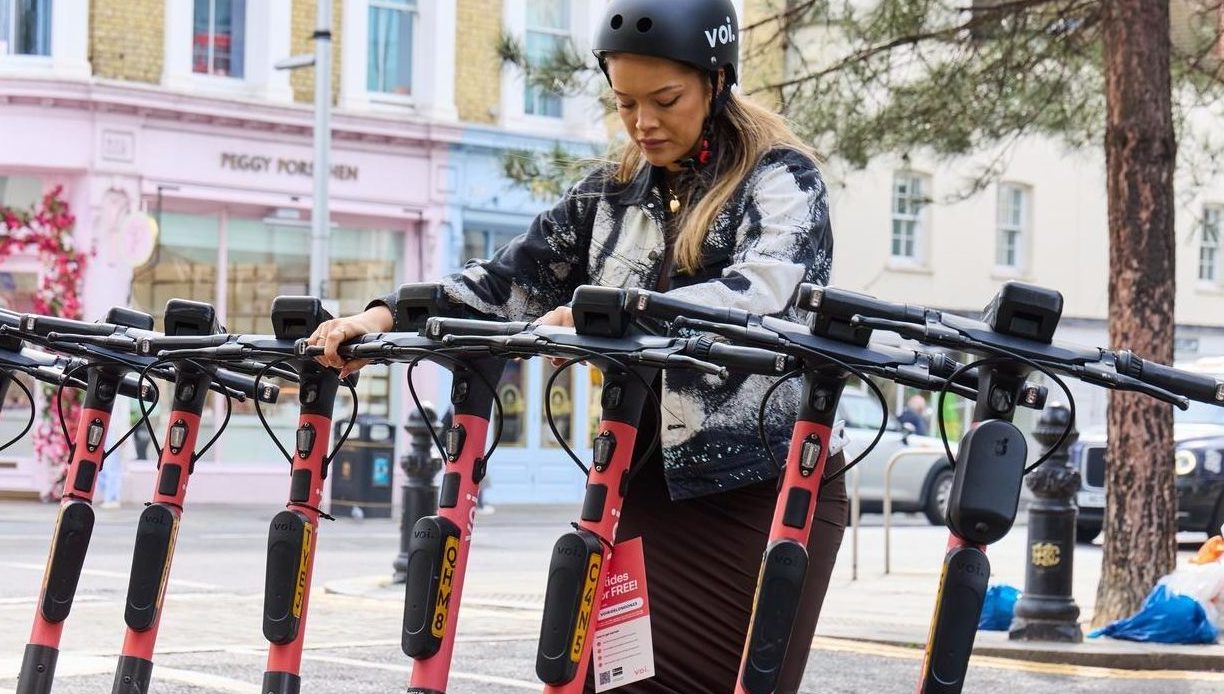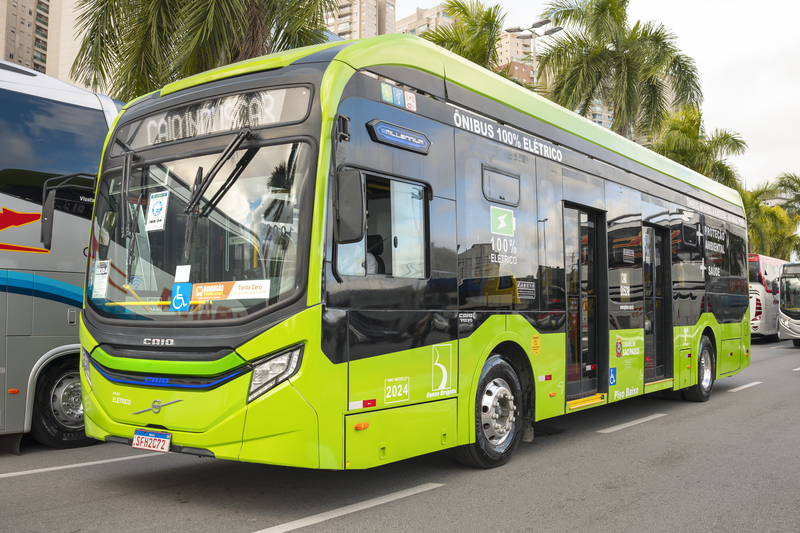
Photo: 9f7819552dbd817c_org
Voi threatens to withdraw London e-scooter fleet
10 June 2024
by Christopher Carey
Swedish e-scooter operator Voi says it may be forced to withdraw from London’s e-scooter trial due to the level of regulation in the UK capital.
In a letter to Mayor Sadiq Khan, Voi CEO Fredrik Hjelm said that if Transport for London (TfL) does not take “urgent action”, the company will remove its e-scooters on the grounds that they cannot compete with rental e-bikes.
“I am sure you will agree that micromobility is crucial to reduce dependency on cars and to increase sustainable and accessible forms of transport,” Hjelm’s letter said.
“We were thrilled to launch in London last September to support this goal. However, we are increasingly concerned about the direction of micromobility in London.
“E-scooters have been extremely successful in cities across the UK and the rest of Europe [but] of the 100-plus towns and cities Voi operates in, London is the lowest-performing due to a heavily regulated trial that cannot compete with largely unregulated rental e-bikes. Urgent action is required to address this.”
While privately owned e-scooters remain illegal to use in public spaces, trial rental schemes have been taking place in towns and cities across England since 2020.
In London, the trial is being overseen by Transport for London (TfL), with Lime and Voi as the two companies participating.
A third operator, Dott withdrew its scooters from the capital in March, citing similar concerns to Voi around the “unregulated” increase in e-bikes.
Dott (which merged with Tier in March) also removed its e-bikes from London last September, citing “high fees and varied regulations” between the boroughs that had led to an “inconsistent experience” for its customers.
Unsustainable
Hjelm said as things stand, it was “financially unsustainable” for the firm to continue operating in the city.
“If we are not able to work with TfL to improve the situation, we are faced with just two options: 1) We withdraw from the city, effectively signalling the failure and end of the TfL-led e-scooter scheme, and creating an effective monopoly for a single operator. 2) This summer, we invest in and deploy 20,000 e-bikes across London.”
Responding to the claims, a TfL spokesperson told Cities Today the capital’s e-scooter trial has been “carefully designed” to ensure the high safety and operating standards, including “controlled parking in designated bays”.
“This model doesn’t currently apply to dockless e-bikes in the same way, but discussions are ongoing with regards to long-term improvements to e-bike parking,” the spokesperson added.
“Rental e-scooters in London operate as part of the national government trial, which allows boroughs to opt in or out of the scheme, and means that the Mayor and TfL have no powers to roll out a pan-London scheme.
“In the absence of government legislation, we are working with London Councils to better coordinate rental e-scooters, and dockless e-bikes, to ensure they are safer for all road users, and provide the best possible service for customers.”
Key issues
Voi says some of the main issues facing e-scooters in London are around geographical distribution, parking, and age and speed limits.
“Only nine boroughs and the City of London are included [in the trial], creating a ‘patchwork’ operating area and severely limiting where people can ride,” the company said.
“Insufficient parking spots mean the average walking time to a vehicle is over 6 minutes, age restrictions are set at 18+ (with 16+ being the DfT guidance) [and] speed [is] limited to 12.5 mph (below the 15.5 mph DfT limit).”
The company also claimed these issues are “not faced by unregulated bikes”.
Parking has been frequently cited as a key barrier to expansion by both e-scooter and e-bike operators in the city however, with Lime recently calling on London boroughs to implement a more “consistent” approach across the city.
Image: Voi













